Keeping Chickens in Prague
In 2013 the EU made a ruling on egg production and the rules around exporting eggs from places that did not meet the new rules. Result – egg prices went up overnight.
As a family of 5 we were certainly getting through some so we took a serious look at keeping our own chickens. Just like in the cartoons where each hen has it’s own nest and eggs roll down the shoot into the basket………wrong.
I used the whole thing as a learning curve and to use up the woodpile created by changing our living room floor the previous year. Certainly frustrating getting any plans off the internet and in the end I was forced to take a plan and reverse it plus increase the sizes. So I had a “working plan” which was designed largely around the fact that I did not want to keep cutting everything so I kept to some basic width and height. And what you don’t realise is that you only need two or three nest boxes, not one each. Two months later we had converted a dead part of our garden into chicken heaven, got the food from a local farm, got the hay from our garden. Now for some chickens.
In Czech there are basically three periods for buying chickens. One is at the end of November when the hens are about to go “off the lay”. These are chicks that you are going to raise over the winter. The second period is March when they are around 15-20 weeks old so not quite laying. The third is May when they are 5-6 months old and already laying. We split the difference and bought 6 hens in the March window.
Scraggy looking things they were and some fun catching them as well. You put some food and water into the coop and lock the door for 24 hours while they get used to it. Then let them out into the little compound. Then finally let them loose into the garden where the dog was going a bit frantic but they got used to it. We had some issues with chickens having to learn that the door to the coop will close at twighlight but they learn fast and after only a week they were getting in before night. And a neighbour had an unexpected present for us, a cockerel. So everyday for two weeks we looked for our eggs and, nothing.
In the third week we noticed a partly formed egg and the following day the egg flow began initially with three and then up to 5 and sometimes 6 everyday. We kept count for the first year and got to 1500 (basically an average of 4 per day allowing for the “off lay” periods).
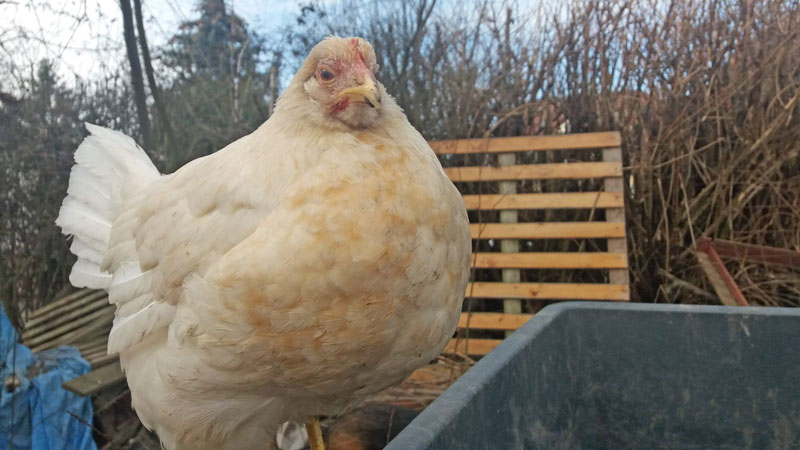
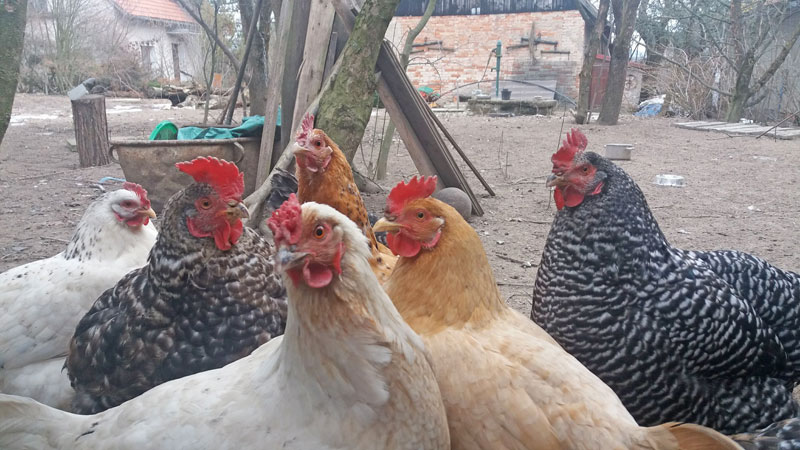
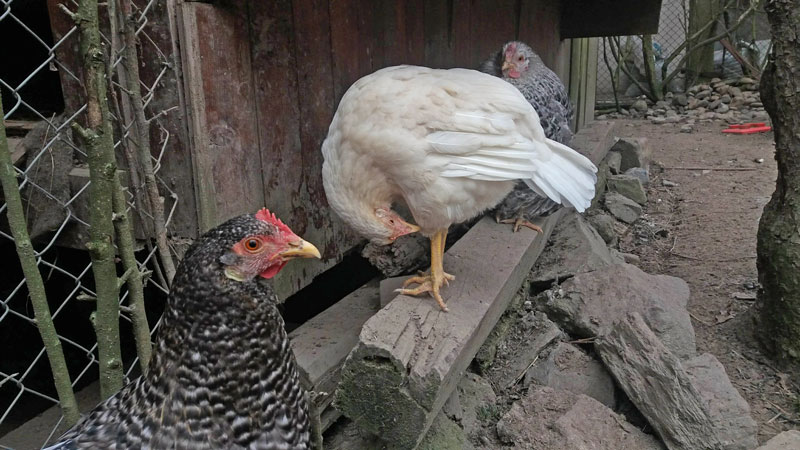
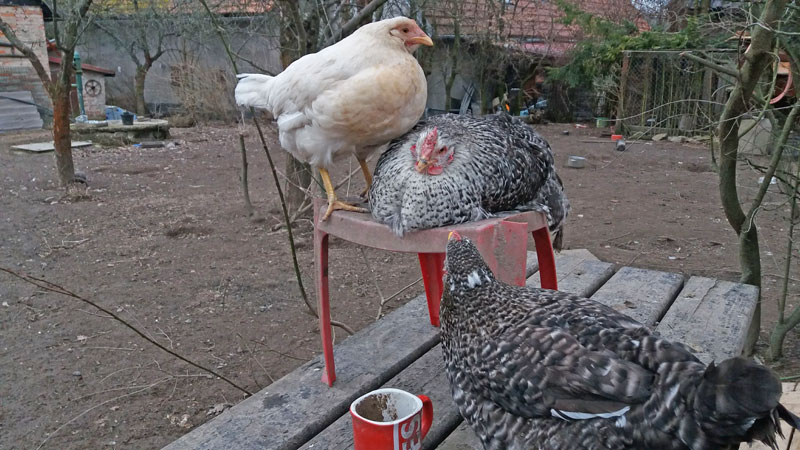
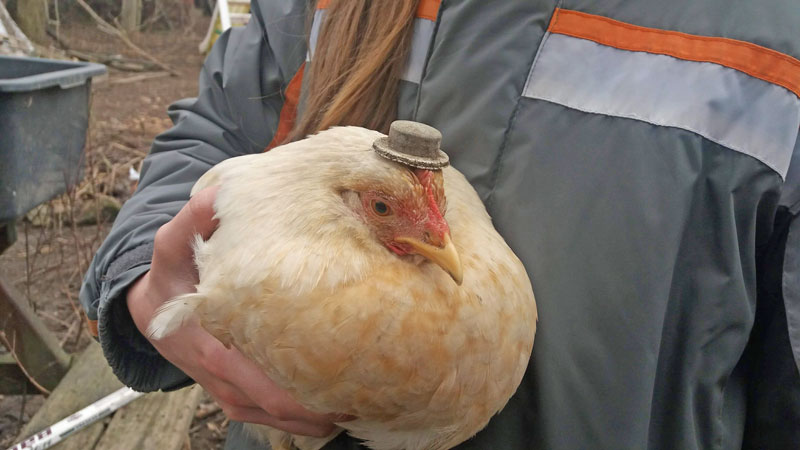
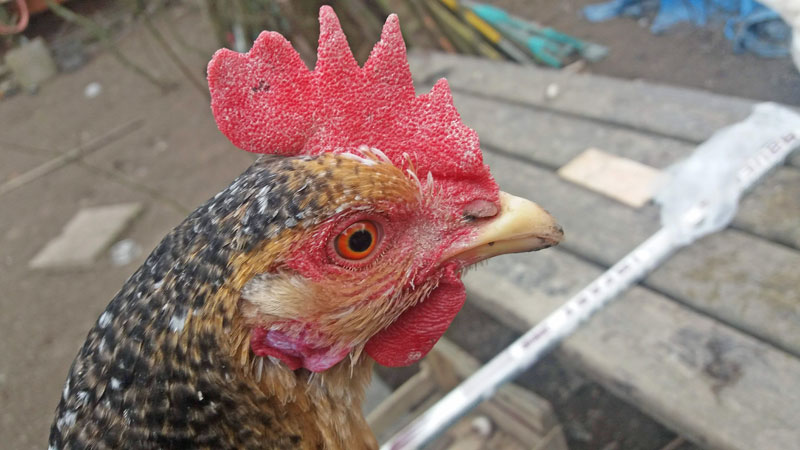
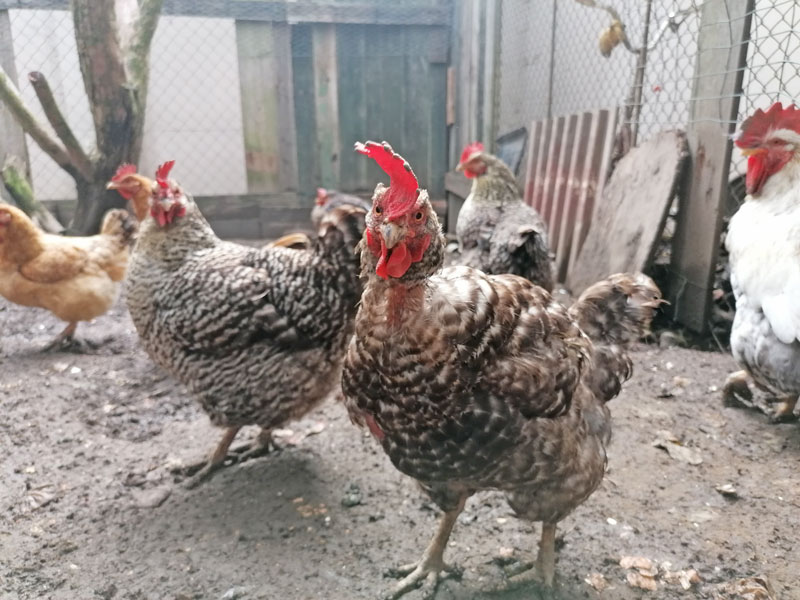
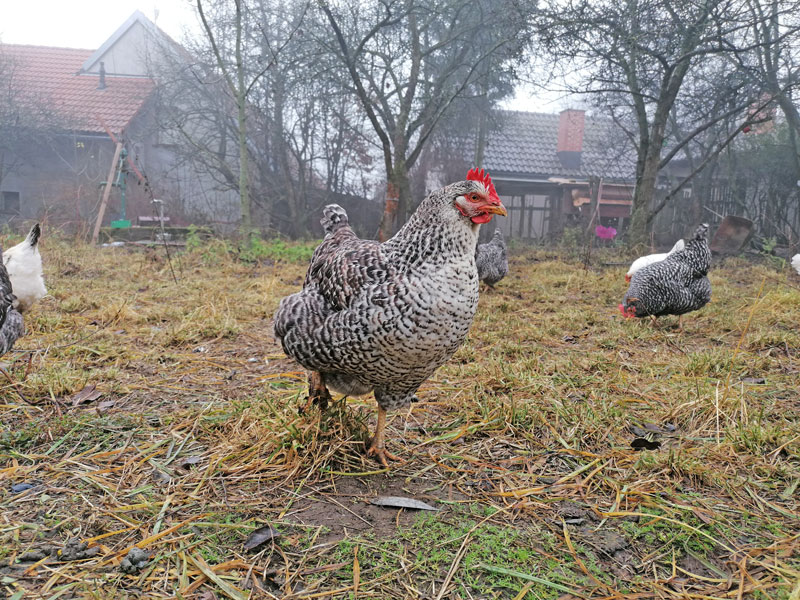
Issues to be overcome? well over the next 18 months we lost 2 chickens that just died and a third killed but we went out and bought another six to bring the numbers up. The flight wings have to be clipped every few months. As we had fertilised eggs we decided to raise chicks of our own which was great until they were not chicks anymore and found that 3 of them were cockerels. Later we ended up killing three of the cockerels for the meat (done by yours truly) and giving the other away. TIP: If you have a chicken that wants to sit on eggs in the eggbox then remove it and give it it’s own space. This means the eggbox is still available to be used and you don’t get confused between new and older eggs. 21 days later when the chicks are due, they’ll be safe from the other chickens.
Getting a constant supply of fresh water that did not freeze was an issue but in the end we came to the conclusion that water in an old saucepan with a lit tea candle underneath would not freeze for at least 5 hours. They get cleaned out once a month and that all goes on the compost.
High points, well that has to be the kids all walking around with chickens like babes-in-arms or simply opening the fridge to all those eggs with beautiful yellow yolks and eating all the cakes made from them. Likewise we barter eggs locally for fresh honey and smoked sausage. And finally, selling 10 days worth of eggs makes enough money for 5 weeks worth of food for the chickens plus their vitamins etc.
Update for 2023: We had not replaced any chickens for three years now and as the cockerel appears to be “firing blanks” we’ve had no chicks. So we just decided to let nature take it’s course and let the numbers reduce which worked out because as the last of the chickens (the 10th generation of the originals) died in the last winter, our village came under bird flu control so we would had to have killed them anyway. It was an interesting 10 years.
